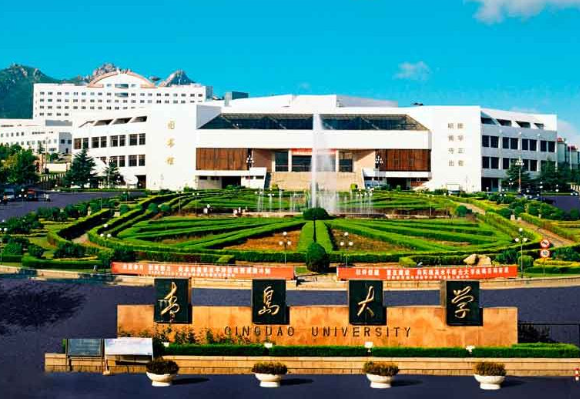Qingdao University of Science and Technology is ranked 1158th among the best universities globally.
Table of Contents
Overview of Qingdao University of Science and Technology
Qingdao University of Science and Technology, located in the scenic coastal city of Qingdao, Shandong Province, China, is renowned for its commitment to excellence in science and technology education. Established in 1950, the university has evolved into a hub of innovation, research, and academic prowess.

Brief History and Achievements
The university began as Qingdao Chemical Technology School and has grown significantly over the decades.The university’s achievements include breakthroughs in polymer materials research, environmental protection technologies, and significant advancements in chemical engineering. Its dedication to fostering innovation has led to the establishment of state-level research centers and key laboratories.
Academic Structure and Faculties
Qingdao University of Science and Technology comprises several faculties, each specializing in key areas of science and engineering.
Faculty of Chemical Engineering
This faculty is known for its pioneering research in chemical processes, material science, and environmental engineering. It has produced numerous patents and research publications that have contributed to the advancement of chemical engineering globally.
Faculty of Information Science and Engineering
Specializing in computer science, software engineering, and automation, this faculty is at the forefront of technological innovation. It focuses on AI, big data, and cybersecurity, preparing students to excel in the rapidly evolving tech industry.
Faculty of Material Science and Engineering
Renowned for its research in new materials and nanotechnology, this faculty works on developing sustainable and innovative materials that have wide applications in various industries, including aerospace, construction, and electronics.
Faculty of Environmental Science and Engineering
World Ranking Criteria and Evaluation Methodologies
These rankings are pivotal for students, educators, and policymakers, influencing decisions in education and research investments.
Global University Ranking Systems
- QS World University Rankings utilize a methodology focusing on academic peer review (40%), faculty/student ratio (20%), citations per faculty (20%), employer reputation (10%), and internationalization (10%).
- Academic Ranking of World Universities (ARWU) emphasizes the quality of faculty (Nobel Prizes, Field Medals), research output (papers published in Nature and Science), research influence (citation indices), and per capita academic performance.
- Times Higher Education World University Rankings assess teaching (the learning environment), research (volume, income, and reputation), citations (research influence), international outlook (staff, students, and research), and industry income (knowledge transfer).
Each ranking system has its unique focus and methodology, affecting how universities prioritize their resources and development strategies to improve their standings. These rankings also guide prospective students and researchers in choosing institutions that align with their academic and professional goals.
Comparison with Other Global Universities
Comparative Analysis by Ranking
Qingdao University of Science and Technology ranks competitively among global engineering and technology universities.
Key metrics where Qingdao University of Science and Technology excels include:
- Industry collaboration and patents in material science and engineering.
- Innovative research projects in chemical and environmental engineering.
Strengths and Areas for Improvement
Strengths:
- Strong industry partnerships: Qingdao University of Science and Technology has forged robust links with industry leaders, especially in chemical engineering and materials science, facilitating research-to-market pathways for innovations.

Impact of Rankings on University Choice
The global rankings of universities significantly influence both student enrollment choices and the strategic directions of academic institutions.
Influence on International Student Enrollment
High rankings often correlate with increased international student enrollment.
- International students are particularly drawn to universities that excel in their field of interest.
- Scholarship and financial aid opportunities also play a crucial role.
Impact on Research Funding and Collaborations
University rankings significantly influence the allocation of research funding and the establishment of international collaborations.
Research funding agencies prefer investing in institutions that demonstrate high research output and citation rates, indicators often used in ranking methodologies. This funding enables universities to advance their research facilities, attract renowned faculty, and conduct groundbreaking studies.
Collaborations and partnerships with other universities and industry leaders are more readily formed with highly ranked institutions.

